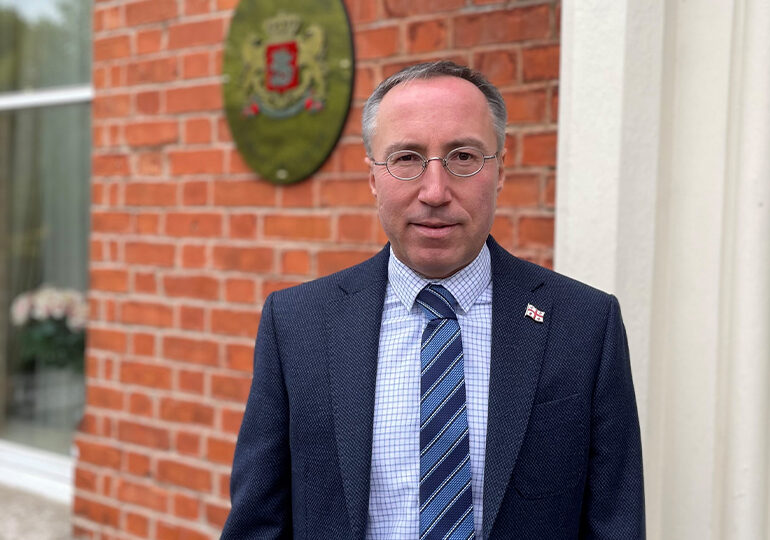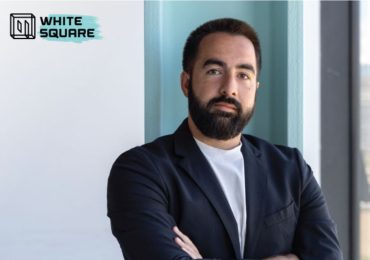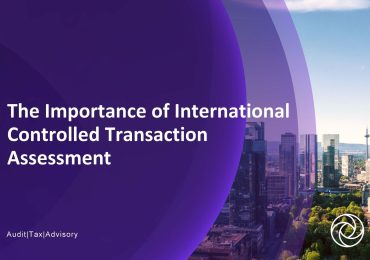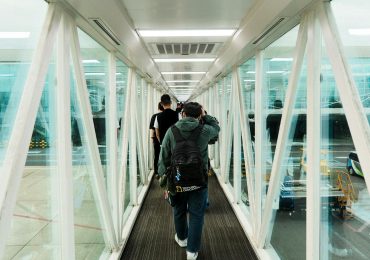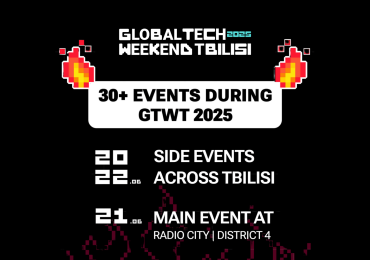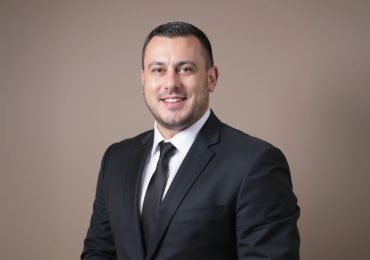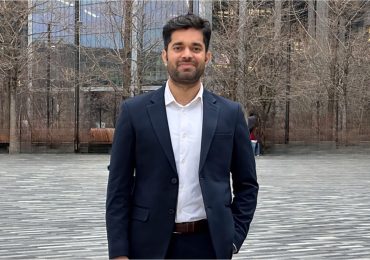The Georgia-Ireland Business Council has been established in June this year with the participation of Irish Deputy Prime Minister, Minister for Business Innovation, Trade and Employment Leo Varadkar, TD. The Business Council unites the largest companies of Ireland and Europe, and as stated by the Ambassador Extraordinary and Plenipotentiary of Georgia to Ireland George Zurabashvili, this will definitely help to increase the business interests in Georgia.
Ambassador George Zurabashvili has been the head of the Georgian Embassy in Ireland for 6 years and according to him, Ireland is the best example of how a small country strives for large and ambitious goals achieved courageously and successfully.
Forbes Georgia focused on similarities between these two countries that are located in the extreme west and east of the European continent and what they have in common? It is significant, that this year coincides with the 25th anniversary of the establishment of diplomatic relations between Georgia and Ireland. To mark this important date, an anthology of Irish-Georgian poetry is published under the auspices of President of Georgia Salome Zourabichvili and President of Ireland Michael D. Higgins.
Ambassador Zurabashvili, how did your relationship with Ireland begin?
As for many Georgians Ireland first was introduced through famous Irish literature – the stories of Oscar Wilde, Jonathan Swift, later – James Joyce, Samuel Beckett – these authors can be found in the personal library collection of almost every family in Georgia. Further touch occurred when I arrived in Dublin on a business trip, following which I decided to travel to Ireland as a tourist. The new and more responsible stage of my connection with Ireland began in 2015 when the full-fledged Embassy of Georgia opened in Ireland, which definitely marked a new and important page in the history of diplomatic relations between the two countries.
I have been working in Ireland in an official capacity for over 6 years, and from the very first day to present Ireland has been a country of opportunities. Twenty-five years of diplomatic relations between the two countries gave a firm basis for cooperation and friendship, which I, as a diplomat, needed to explore and develop. I am pleased that during my tenure in Dublin, the full-fledged Georgian mission to Ireland, which previously existed as a representation, began to function as an embassy.
The official opening of the Embassy of Georgia in Dublin was the most remarkable day for me as an Ambassador, which involved a solemn ceremony of raising the Georgian flag. Besides, this has given a significant impetus to the development of relations between the two countries, which nowadays is characterized by high dynamics and covers all areas of cooperation, from high political support to people to people contacts. Gladly, the Irish side is also very keen and interested in developing our relations further, which is naturally a contributing factor to the process.
It is very important to mention, that Ireland strongly supports Georgia’s sovereignty and territorial integrity, as well as our integration into the European Union. In this regard, we have witnessed unprecedented motions adopted in recent years by the Irish Parliament and the Senate in 2016, 2017, 2018 that I am immensely grateful for.
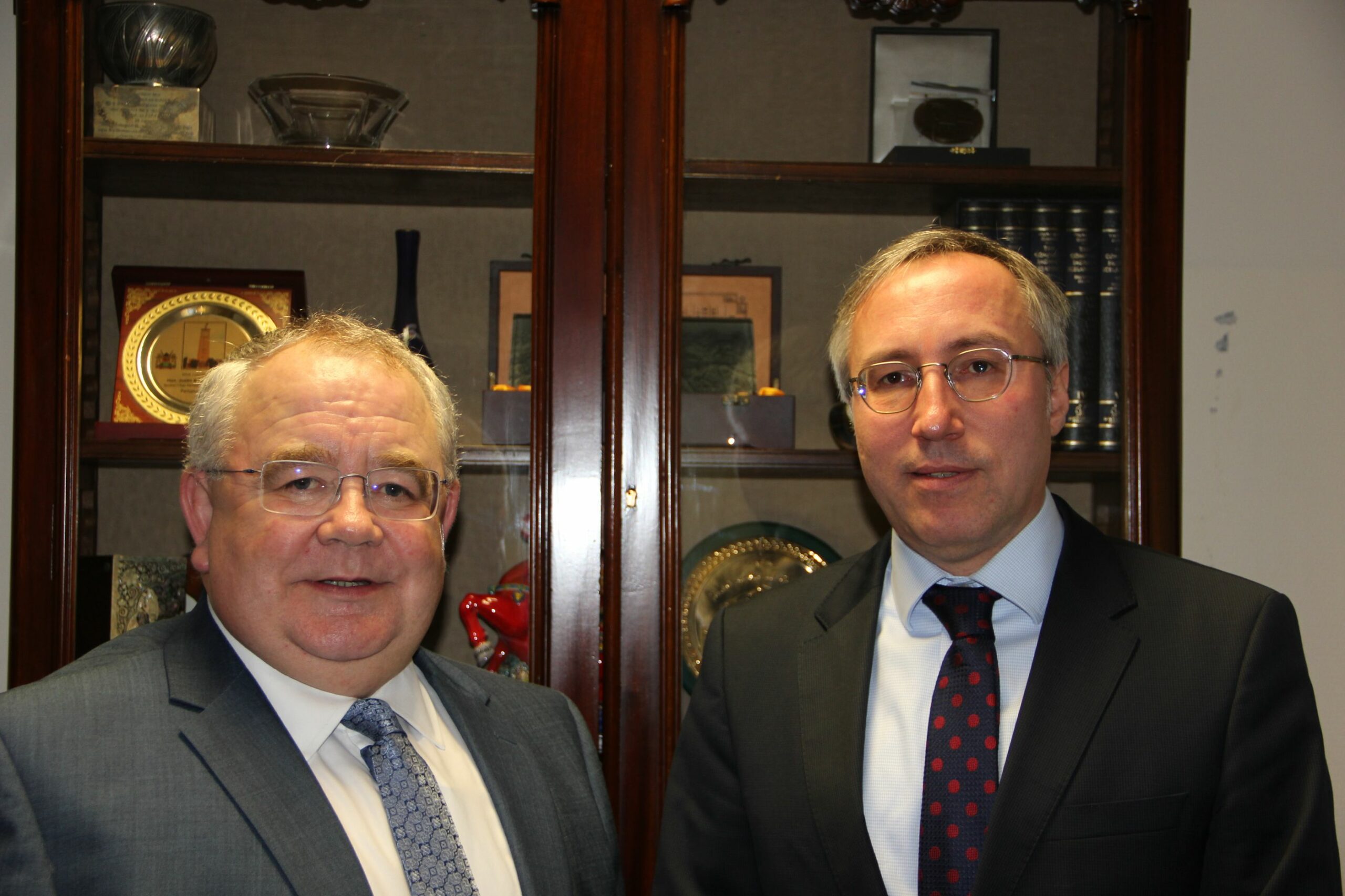
In parallel, the dynamics of the exchange of visits at the parliamentary level have increased in the last few years. Just a few weeks ago, the visit of the Georgian parliamentary delegation has hugely contributed to deepening the relations between the parliaments. I am pleased that the Georgian delegation had an opportunity to meet up with the Irish politicians, to exchange information with Irish politicians on Georgia’s development, the challenges we face and our capabilities. This was particularly important, as Irish people are our strong supporters within the EU, which needs to develop further. It is important that the parliamentary friendship groups have been established in both parliaments, and notably the prominent member of the Fianna Fail party, Senator Diarmuid Wilson serves as a convenor of the friendship group with Georgia in the Irish Parliament. Senator Wilson has made a number of statements in support of Georgia. A few years ago, he travelled to our country, and besides attending the official meetings, he visited the occupation line and is very well acquainted with the current situation there.
In addition to the political aspects, economic cooperation is gradually progressing with the local business circles, chambers of commerce and government agencies. As a result of several years of hard work the Georgia-Ireland Business Council has been successfully formed and is represented well by the Irish large and medium-sized businesses.
Could you elaborate more on the Business Council please, what was the necessity to establish, what function the Council has and how big are the economic opportunities between Georgia and Ireland?
The Georgia-Ireland Business Council has been established in June of this year. The inaugural ceremony of the organization itself was quite representative with the participation of the Deputy Prime Minister of Ireland, Minister of Business Innovation, Trade and Employment Leo Varadkar TD, that on the other hand indicates the strong interest of Ireland to develop economic cooperation with Georgia. The Georgian Chamber of Commerce and Industry is actively involved in this process from the Georgian side. James Bridgeman SC, Honorary Consul of Georgia, chairs the Georgia-Ireland Business Council. He has extensive business experience and is considered one of the leading arbitrators in Europe and worldwide. It is worth mentioning that the Business Council is represented by the leading Irish companies, such as – Glen Dimplex Group, Shannon Group, Smurfit Kappa, Ibec Association, Total Produce, Flutter Entertainment, Phelan Energy Group, etc. These businesses operate in various sectors like digital technologies, artificial intelligence, energy, agriculture, pharmacology, real estate, etc, these are the most respected companies with good brand names. As they are operating not only in Ireland but broader world markets, their engagement with the Georgia-Ireland Business Council confidently will increase the interest of the European businesses in the economic opportunities of our country. Moreover, in 2018, according to the official figures provided by the National Statistics Office, Ireland was the largest trading partner for Georgia (with the top place), which was related to trade in pharmaceutical products. Probably few people know that in 2019 one of the largest investors in Georgia (top place) was the Irish company Flutter Entertainment, which is also one of the active members of our business council.
The Georgia-Ireland Business Council has pencilled an intense agenda of sectoral meetings for the next year, with the first meeting in the horticulture sector scheduled in January. This would be one of the priority areas as both countries are agrarian states, and hence it will be interesting for us to share the Irish experience, as well as to present opportunities Georgia has in the agriculture sector for trade and investments as we grow various organic produce. Another meeting is scheduled next February that will bring together the IT technologies and digital companies, as you might know, Ireland houses European offices of many well-known digital companies.
In addition, we are planning to organize a visit of the Council members to Georgia next summer followed by a Business Forum.
You mentioned the Irish investments in Georgia, we all remember well the arrival of the company Ryanair in Georgia, which brought great joy to the Georgian travellers interested in low-budget tourism. What do you think caused the company’s interest in Georgia and how successful was this project?
I am glad that the entry of Ryanair, one of the most highly rated and trustworthy airlines in the world, is the result of the hard work of the Ministry of Economy and Sustainable Development of Georgia and the vast efforts of the Embassy of Georgia in Ireland. During our meetings, the company executives have always expressed their interest in Georgia as an attractive market with the view to expand further routes to the Asia-Middle East from Georgia. It again indicates the most important transit function of our country that we have great potential in, to become a hub of such gigantic air carriers as Ryanair. Certainly, the entrance of Ryanair to Georgia has increased the awareness of Georgia not only in Ireland but also throughout Europe, as the company aggressively advertises the destinations it operates in. You probably remember the advertising-marketing campaign of Georgia, which became quite popular among Ryanair passengers. Unfortunately, the global pandemic has prevented the company from building up the routes, but I do hope that Ryanair will resume flights to Georgia from next year.’
How much will this increase the interest in tourism or how do you see the possibility of developing cooperation in the field of tourism?
As you know, Ireland itself is one of the most popular tourist destinations in the world and that is why, when we talk about cooperation in the field of tourism, it would be interesting to share the experience for both Ireland and Georgia. Prior to the pandemic, more than 11 million people visited Ireland each year, with the tourism sector accounting for 6.3% of GDP, which is more than € 18 billion in cash, employing around 250,000 people in the sector. Tourism in Georgia is a growing field with 8.5 million visitors in 2019. We have quite innovative and resolute approaches, including in the direction of how quickly and effectively Georgia is rehabilitating the tourism sector in the post-pandemic period. As for the growth of tourist traffic, I personally think that for an Irish tourist who loves to travel and get to know foreign countries, Georgia is a good and interesting destination. As you may know, since 2016, the St. Patrick’s Day celebration has become a tradition in Georgia, on March 17 of each year, and I would like sincerely to thank the Tbilisi Mayor and the City Hall for the support of this initiative. It is the fifth year consistently that on St. Patrick’s Day the iconic city sights, such as Tbilisi TV Tower, the Metekhi Cliff and Old City Abanotubani turned green. It helps Georgia to pop up on the priority destinations to travel, gradually gaining popularity among the Irish. We are enjoying a 400% increase in Irish tourists visiting Georgia for the last years.
All the above is a result of the efficient work of the Embassy at all levels considering the central government or the counties local authorities. In 2015 during the visit of the Tbilisi Mayor in Dublin, a memorandum on the friendship between Tbilisi and Dublin was signed. In 2018, a memorandum of friendship was signed between the Autonomous Republic of Adjara and Cork County during the visit of the Lord Mayor and the Chief Executive of Cork County in Batumi.
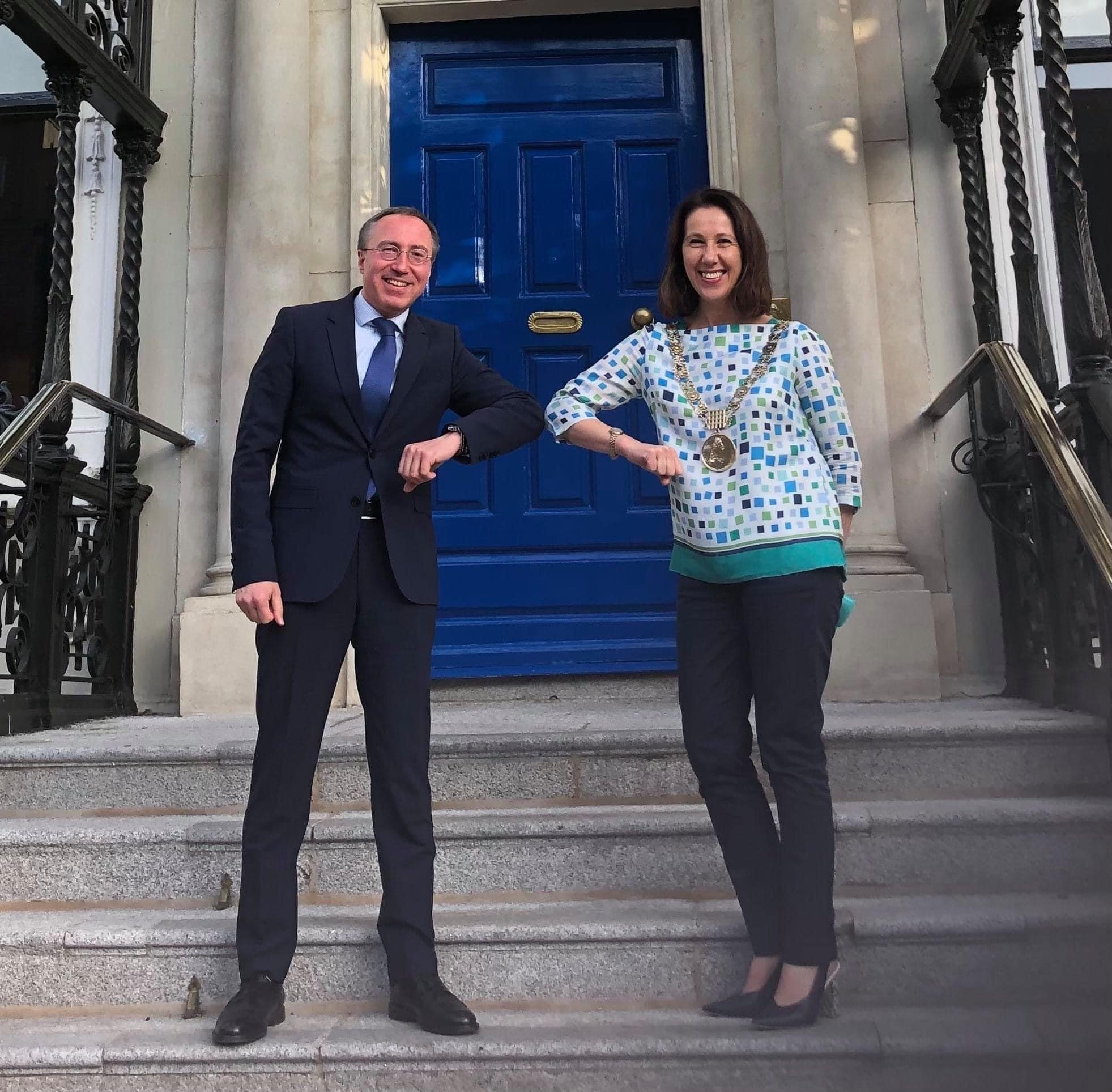
Another initiative envisages sharing the rich experience of Dublin Port in the field of cruise tourism through the friendship memorandum panned with the Batumi Port in 2017. Ireland is an active member of the European Cruise Association and the memorandum will facilitate the process of possible affiliation or accession of the Port of Batumi to this organization. Unfortunately, some circumstances and the global pandemic has delayed this process and I hope this cooperation will restore in the near future.
When talking about Ireland, it is hard to ignore the main brand image of the country – Guinness and Irish whiskey, while Georgia is actively trying to promote Georgian wine abroad and this is one of the priorities of our embassies, is it going to be a bit difficult to accomplish this task in relation to Ireland and do you see any prospects in this regard?
One of the main activities of the embassy is to promote Georgia and raise awareness about our country. Having an Embassy on the ground helps greatly as it gives us a possibility to organize different events such as cultural, political, economic, wine testing and other kinds of events. I agree that Ireland is a specific market for wine, as it is known for its conservative taste, but I can assure you that the active work of the embassy in these areas has yielded concrete results. The Georgian wine tasting events organized by our embassy with the support of the Georgian Wine Agency has brought some results as a number of Irish companies introduced various Georgian wines to the market.
Going back to the political agenda, let’s talk about Georgia’s unalterable pro-Western course, how do Ireland politicians see Georgia’s integration into the EU and can we share their good experience in this respect?
For reference, Ireland has gone through a more or less similar difficult path towards joining the European Union, therefore today, based on its own experience Ireland supports small like-minded states, including Georgia. Our friends and partner countries have not left our purposeful endeavour unnoticed. Ireland strongly supports Georgia’s European integration, which is well reflected in the above-mentioned parliamentary motions and the vocal contributions continuously presented by the Irish government.
It would be also interesting for a reader to draw parallels between Ireland and Georgia in relation to economic progress and development. A few decades ago, Ireland was an economically weak country, however, integration in the European Union helped Ireland to develop and become one of the world’s leading economies. Although this path, as in the case of Georgia, was not easy, these people achieved their current status as a result of hard work, foresight and patience. Perhaps this is also a reason why the Irish has a specific attitude and sentiments of Georgia’s progress towards the European Union integration. You might be aware that nowadays Ireland is one of the most pro-European countries in the EU, which supports EU enlargement. Of course, with the existed EU-scepticism spread across Europe, it is very important to gain support from each EU member state.
We all know that the path of Georgia’s European and Euro-Atlantic integration is difficult and today our country is struggling on this path, including combating hybrid challenges. In addition, at the event dedicated to Diplomat Day, the President of Georgia Salome Zourabichvili also spoke about the hybrid threats, in particular the impact of disinformation and the need for the active work of our embassies in this process.
I agree with you, that the way to the achievement of Euro and Euro-Atlantic integration is not easy and, naturally, in the modern world there are many challenges and dangers of both conventional and more sophisticated types. Russian Federation is trying to hinder Georgia’s progress and uses all possible means, including one of the most active and effective weapons of modern times – a “hybrid war”, and not only against Georgia but also against the western world and the European values in general. As an example, one of the manifestations of this is active disinformation and anti-Western propaganda. I will not start discussing the details now, because, firstly, this conversation will take us too far, and secondly – I assume that nowadays almost everyone knows what it means, what are the ways and purpose of the “hybrid war” and one of its manifestation – the disinformation. I agree with Madame President Zourabichvili that given today’s reality our front line is in combating the Hybrid warfare that through disinformation and propaganda create threats to the national security and of course our embassies should consider this when promoting the country or combating disinformation.
This is a very serious challenge, which is global in its scale and ultimately causes great damage to the national interests of all countries involved, and in this particular case, Georgia. Consequently, any manifestation of such a war must be taken very seriously. Furthermore, it is noteworthy that Russia actively uses the weapons of hybrid war against Georgia in other countries and often in areas such as media, analytical and research centres and in education. We remember cases when some foreign universities had attempts to provide distorted facts about Georgia, Georgian history and the ongoing occupation of our territories by the Russian Federation, by using the Russian propaganda narrative. It is clear that by doing so, Russia is trying to create misconceptions about its occupation and aggressive policy, in foreign states especially among the younger generation, which may, in the long run, significantly damage and complicate the consolidated support of the international community to de-occupation of Georgia’s indigenous territories of Abkhazia and S.Ossetia/Tskhinvali region. In many cases, this far-reaching propaganda targets the young generation, students, researchers and academics who might work in the fields of international relations, public sector, diplomatic missions or international organizations. I can cite an example from the Irish university, where the course about Georgia and Ukraine was taught with a Russian “narrative”. Of course, as soon as this fact was revealed, both Georgian and Ukrainian embassies had a joint communication with the university authorities expressing our deep concerns, providing the correct facts about the occupied territories of Georgia, human rights violations, creeping annexation, which is an internationally recognized truth.
What could be Georgia’s retaliatory action against disinformation, and what leverage do embassies have to reveal similar facts and counter the alarming consequences of this “hybrid war”?
First, we must accept the fact that Russia is behaving this way. It is absolutely necessary to inform our partners and draw their attention to this problem, so that everyone understands that today not only distorted history is taught in occupied Abkhazia and Tskhinvali schools but also where they can stir up misconceptions, at the international level, in various universities or academia. For example, if we probe deeply into this process, it is unfortunate that the propaganda machine of the Russian Federation abuses the principles of academic freedom that is so valuable and respected for the educational system and, taking advantage of its cover, spreads disinformation narratives and propaganda.
Actually, it is hugely important that in addition to the Georgian government the civil society, academia, experts, research circles must take the due attention, as this segment is the force that should more actively oppose Russian propaganda and disinformation, which is trying to gain a foothold in foreign academic and research circles.
In this regard, the Ministry of Foreign Affairs, through embassies, is actively working to combat Russian propaganda and disinformation but quite often we must confront this problem on our own. However, the sovereignty, territorial integrity and de-occupation of our homeland remain the work of every Georgian, every citizen and the state should have the support of everyone be it an academic, politician, diplomat or anybody else.
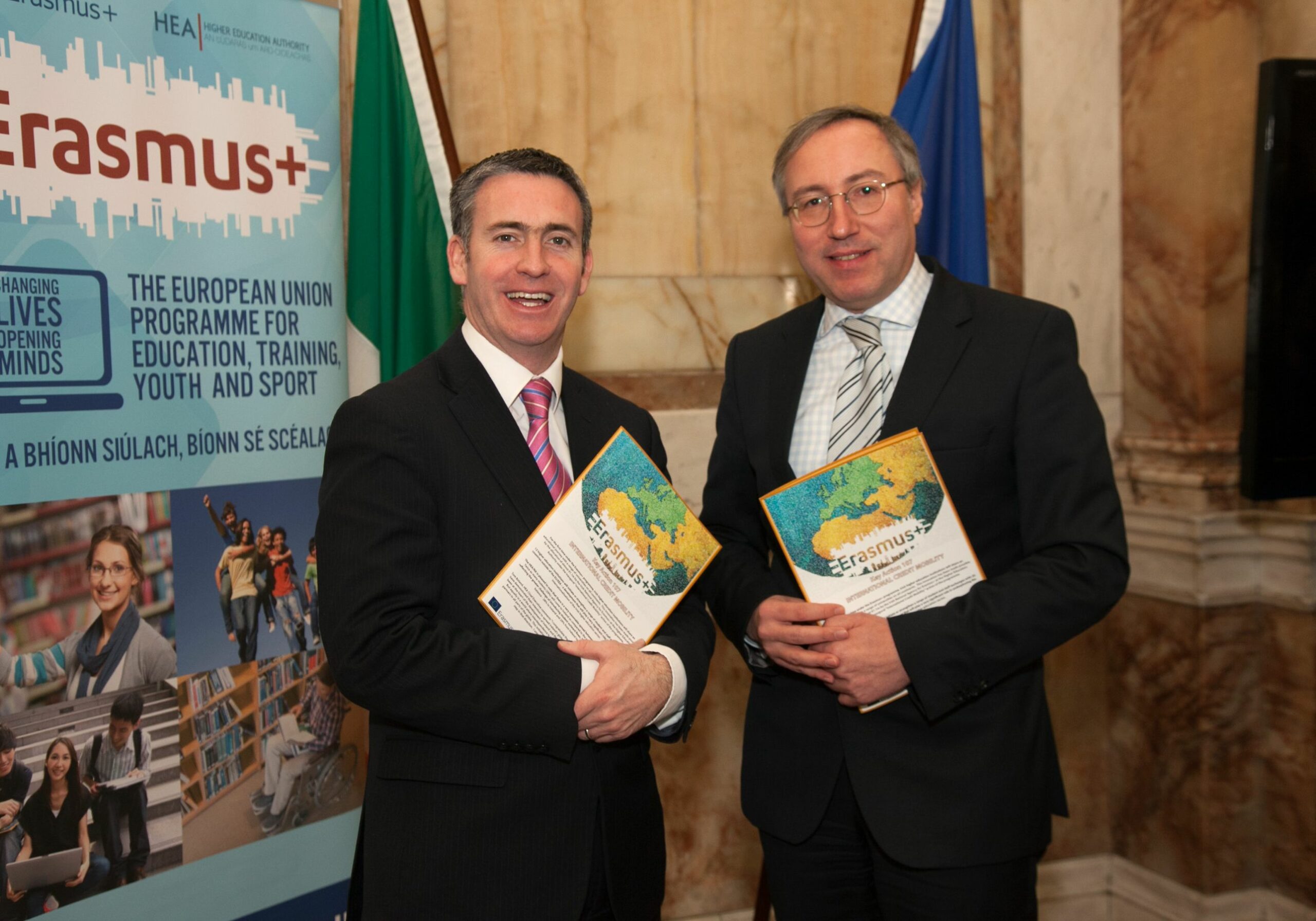
In this regard, the efforts of Georgian diplomats, including mine, aim to keep Georgia in the frontline of international politics of foreign states focusing on strong support towards the sovereignty and territorial integrity of Georgia.
Diplomats are constantly informing the host countries about the “hybrid war, disinformation, as well as aggression and provocations carried out by Russia. We conduct seminars and conferences; work with research centres, experts, and media representatives, providing them accurate, fact-based information acknowledged and recognized by the international community. Nevertheless, as I have already mentioned the active involvement of Georgian experts and academic and research circles in this process is essential.
The truth is on the side of Georgia; therefore, we should not be afraid to reveal such facts, especially when it comes to the sovereignty and territorial integrity of our homeland. I hope that the research centres and academia in Georgia will pay more attention to this problem and more actively oppose Russian propaganda and disinformation. The fight against the Russian occupation is the duty of every citizen, every Georgian. I believe that the time will come soon when Georgia will not only have dealt with the “hybrid war”, but also have regained our territorial integrity.
We talked about propaganda and disinformation, how often do we come across similar narratives in the Irish media or do you manage to disprove it through the media?
In this regard, a rather interesting trend is developing. Earlier various regional publications interested in Georgia mainly covered economy, culture and tourism, now we witness the outlets gradual change of interest from general to regional and security issues.
It is obvious, that at first glance, our region is not so explicitly in Ireland’s strategic geopolitical interest, but Georgia, as an Eastern Partnership country aspiring EU integration and as one of the most pro-European countries in our region, is definitely gaining more interest in the media spotlight in Ireland.
I must mention the so-called trilogy on the Russia-Georgia conflict published in the Irish online outlet, it is a three-part journalistic analytical essay that describes well the historical aspects of the war, as well as Russia’s occupation and destructive actions against international law and the grave humanitarian and security consequences of the occupation.
In October, the embassy organised an online conference dedicated to the 13th anniversary of the Russian-Georgian war and the Russian occupation. It should be noted that very interesting experts-speakers from Georgia, Ireland, the EUMM (monitoring mission of the EU), and France participated at this conference. As it was an online event, it allowed us to send out invitations to a wider audience such as government officials, members of parliament, professors and academia, universities, as well as students, research centres, media representatives, etc.
While there are many hotspots, challenges and various problems in the world, it is very important to keep the Russia-Georgia conflict on an active agenda of the international community and to hear vocal support against the occupation and destructive policies of Russia against Georgia from the European capitals. So that any article, commentary or essay that brings the internationally recognized truth about Georgia has a great significance.
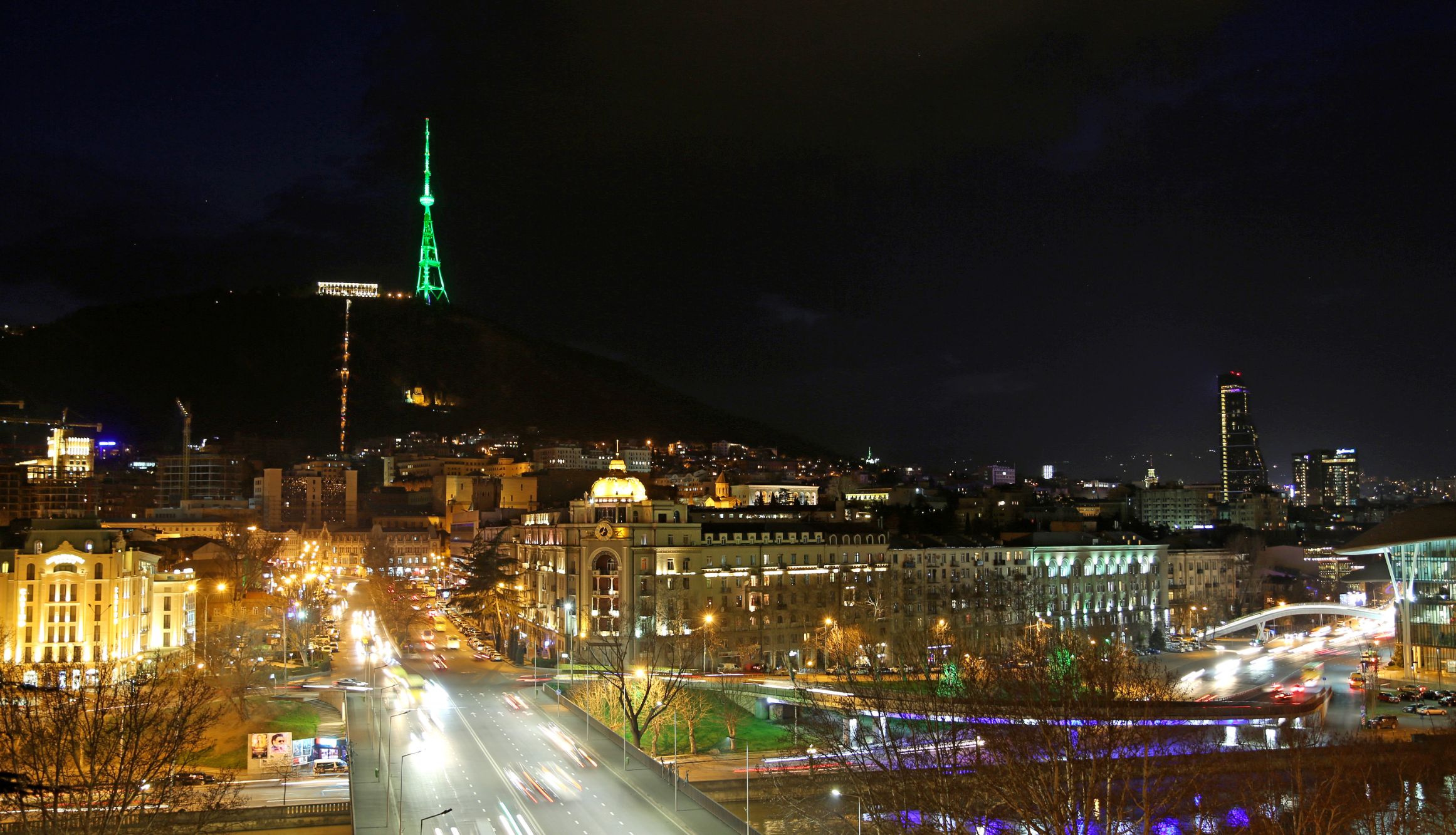
The image of Georgia abroad is created not only by a diplomatic mission but also by Georgian people living in emigration. How active is the Georgian Diaspora in Ireland?
I am very proud that Georgians in Ireland are distinguished by good characteristics, decency and hard work. The Georgian Community Council is already operating in Ireland, which makes it easier for both, the Embassy and the Georgian Diaspora, to work together on a number of amazing projects. We are going to establish a Georgian cultural centre in Dublin where we would like to open a Georgian library. We are enormously grateful to the Director of the National Parliamentary Library of Georgia for providing books for us. Of course, this development will be very important for our compatriots, as this centre will unite not only all Georgians living in Ireland but also our Irish friends. Any Georgian living in Ireland will be able to take an opportunity to initiate, propose a project, express and use facilities of the centre. In the centre, we will house the Sunday school “Lampari”, which has been operating successfully for more than 10 years and encourages the young Georgian generation to love their homeland, the Georgian language and our history. In addition, we have brilliant, a very talented youth choir and a Georgian dance team. Of course, we have huge support from the Ministry of Foreign Affairs, as one of the top priorities of the MFA is to work closely with the Diasporas. The President of Georgia pays special attention to the diaspora matters which is also a very significant help for us.
The Georgian Diaspora is also actively participated in the various events being organised to celebrate the 25th anniversary of the Georgian-Irish diplomatic relationship, for which I would like to thank everyone involved.
In conclusion – imagine a situation where you can present Georgia to the Irish with just a few sentences and vice versa – Ireland – to the Georgians: What would you say in such a situation?
I would like to point out, that each of the above actions taken in recent years, be it political, economic or cultural, have been important steps taken forward to strengthen the relations and friendship between Georgia and Ireland.
The Irish, like the Georgians, are hospitable people and very kind to the guests. One of the interesting features of the Irish is their calmness and patience. The Irish favourite phrases during the negotiations are “be patient” or “there is always tomorrow”.
When I tell Irish people about Georgia, especially those who know very little about our country, I often use this phrase: “There is a country in the far south-east of Europe, with an area similar to Ireland, with almost the same size population, friendly and kind people, beautiful nature… where you will feel yourself home – this country is called Georgia’’. On the other hand, Ireland is the best example for me of how a small country aspires to big and ambitious goals, which she achieves diligently and successfully.
As I have mentioned, this year we celebrate the 25th anniversary of diplomatic relations between Georgia and Ireland. To celebrate and commemorate this very important milestone of our friendship, an Anthology of Georgian poetry, as well as an Anthology of Irish poetry, will be published in both countries respectively, under the patronage of both Presidents. I would like to take this opportunity and extend my special gratitude to President of Georgia Salome Zourabichvili and President of Ireland Michael D. Higgins for their support and contribution. I am confident, that this publication will make the two nations better acquainted with each other and through the Irish poetry Georgian readers will explore the souls and thoughts of these faithful people from a brave small country in Europe called Ireland.
